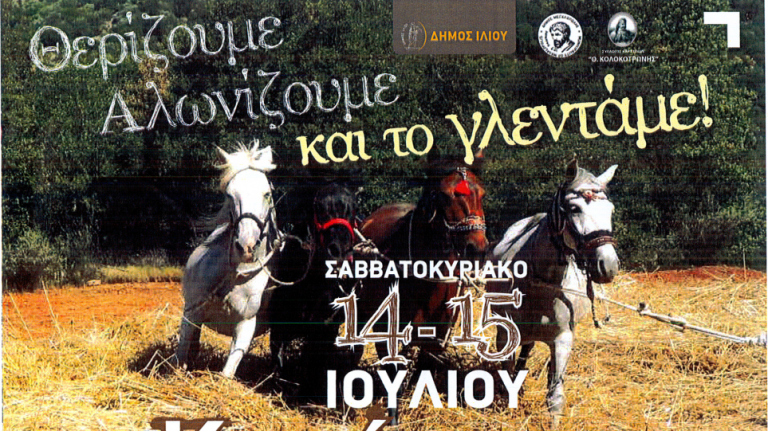A mere two-hour drive from Athens, memories of a past era will come to life over the weekend of July 14 and 15, as event reviving the traditional harvesting and threshing of Karytaina will be revived. The Visitors at the historic village, a community in Arcadia in the centre of Peloponnese, will be transported to another time.
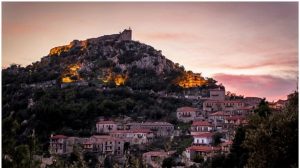
The event is co-organised by the Karytaina Athens and Piraeus Association called “Theodoros Kolokotronis” in collaboration with village’s primary school and other students from surrounding schools, as well as the Ilion municipality of Attica and the municipality of Megalopolis.
The 48-hour event will kick off on Saturday afternoon with a traditional kantada “peratzada” (stroll) on the paved alleys of the old market.
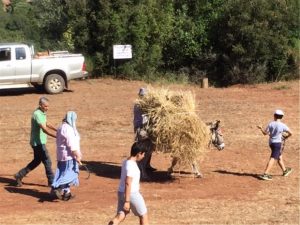
Then a number of dance performances from traditional dance groups from all over Greece will take place in the central square of Karytaina. Later on, there will be more music and dances with the accompaniment of the traditional music band of George Daliani.
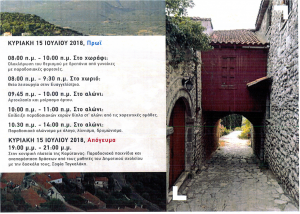
Karytaina, the village of the leader of Greece’s 1821 national revolution, Theodoros Kolokotronis, is situated on a hill on the right bank of the river Alpheios, near its confluence with the Lousios. Stone mansions, cobbled streets, Byzantine churches, a medieval Frankish castle, water streams and small bridges make up the backdrop of the beautiful village on the slopes of Arcadia.
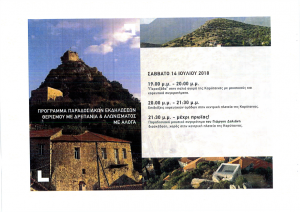
The village, also called the 5-thousand village due to the fact it was depicted on the 5-thousand-drachma note before Greece adopted the Euro, will see many visitors in the event themed “Revival of Harvesting and Threshing” which will take place at a manor on the Karytaina-Atsicholos street on the banks of Lousios river.
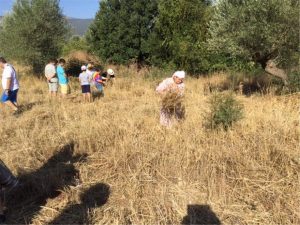
On Sunday, the events will start at Thanasis Liapis’s Estate with the harvesting, followed by horse threshing, fanning, distillation and the day will wrap up in the evening with an interactive children’s play in the village square! The students will revive all the stages of the old ways of making bread from sowing seeds, to harvesting, all the way until ill the bread is served on the tables.
Ask me anything
Explore related questions
